Bibliotherapy: reading for health
 Search self-help in the libraries’ catalogue or in a book shop and you will find hundreds of publications. From anxiety, self-esteem and grief to mindfulness, self-care and cognitive behavioural therapy (CBT) these books are popular and can be very useful. The Reading Agency, along with the Society of Chief Librarians, are well aware of this and joined together to offer the Reading Well scheme promoting reading lists endorsed by health professionals. The majority of the books on the list are non-fiction and subject specific but some fiction titles are creeping onto the list.
Search self-help in the libraries’ catalogue or in a book shop and you will find hundreds of publications. From anxiety, self-esteem and grief to mindfulness, self-care and cognitive behavioural therapy (CBT) these books are popular and can be very useful. The Reading Agency, along with the Society of Chief Librarians, are well aware of this and joined together to offer the Reading Well scheme promoting reading lists endorsed by health professionals. The majority of the books on the list are non-fiction and subject specific but some fiction titles are creeping onto the list.
But can reading fiction really promote mental well-being too?
Fiction as relief?
On World Mental Health Day, October 2018, the BBC radio presenter, Stig Abel, discussed with author Marian Keyes and comedian Russel Kane on Radio 4’s Front Row the healing properties of reading fiction. They described how they turned to fiction to gain perspective and balance, how they used it as pain relief, and as a mechanism to help them deal with the mental strife they were facing.
In the early 20th Century the Unitarian minister and essayist, Samuel McChord Crothers, coined the term Bibliotherapy in an essay titled A Literary Clinic in which he discusses ‘literary prescriptions’ with a fictional doctor friend. Literature is prescribed according to its beneficial qualities:
‘A book may be a stimulant or a sedative or an irritant or a soporific. The point is that it must do something to you, and you ought to know what it is. A book may be of the nature of a soothing syrup or it may be of the nature of a mustard plaster.’
Bibliotherapy is behind Relit, a charity researching and promoting literature and mental health. They believe that literature and especially poetry can ‘relieve, restore and reinvigorate the human mind.’ Along with the University of Warwick the charity helped set up the Future Learn course Literature and Mental Health: Reading for Well-being.
You’re not alone!
When we read fiction we can become engrossed in, and empathize with, the struggles of the characters. Research has shown that this in turn can lead to self-reflection and greater awareness of others’ feelings. We follow the characters’ storms and calms, their ups and downs. We cry at their misfortunes and are lifted by their successes. The whole process can be cathartic.
If you want a book to put things into perspective here are some examples that may help: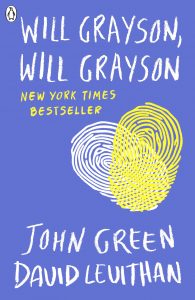
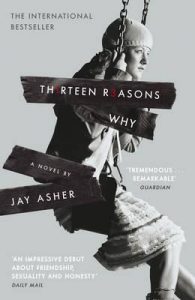
Book Thief by Markus Zusak – ‘took me on a roller-coaster of emotions and I loved every bit of it’
Extremely Loud and Incredibly Close by Jonathan Safran Foer – ‘reminds us we are human’
Jane Eyre by Charlotte Bronte – ‘makes me feel that I could make it on my own’
Will Grayson, Will Grayson by John Green & David Levithan – ‘helped me make more sense of my own depression’
The Perks of Being a Wallflower by Stephen Chbosky – ‘a reminder that someone out there understands me’
Thirteen Reasons Why by Jay Asher – ‘made me re-evaluate my life’
Someday, Someday, Maybe by Lauren Graham – ‘made me laugh again’
Comfort Reading
However, some people prefer to escape with fiction rather than use it as a cathartic tool; Stig Abel read P.G. Wodehouse while Marian Keyes read Agatha Christie and Margery Allingham books. Both presenter and interviewee emphasized the fact that the stories they read were simple: there was conflict, there was resolution. They made them feel that the world was a safe place with all loose ends tied up. Also, being part of a series, they were both aware that they could continue reading the same genre, the same safe stories.
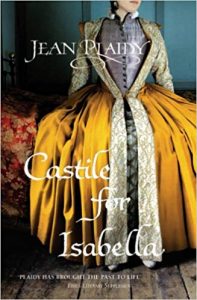
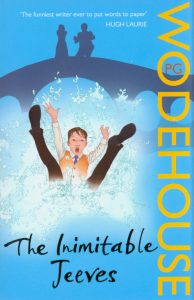 Some ‘comfort reading’ might include:
Some ‘comfort reading’ might include:
P.G. Wodehouse – Wodehouse creates a ‘a wonderfully absurd but entertaining and timeless world’
Jean Plaidy – historical novels ‘loosely’ based on facts, ranging in subject from the Normans to Queen Victoria. Easy to read and help you feel that you are reading something ‘worthy’ because of the historical content.
A Song of Ice and Fire – this includes Game of Thrones and is a series of fantasy books; when reviewed in the Guardian the critic, Michael Hann, stated: ‘when things are, on the whole, pretty crappy [in the real world], it’s a deep joy to dive headfirst into something so completely immersive, something from which there is no need to surface from hours at a time. And if that immersion involves dragons, magic, wraiths from beyond death, shapeshifting wolves and banished princes, so be it.’
Lord of the Rings trilogy – ‘be taken away to an invented world wherein everything serves some manner of purpose’
Terry Pratchett – ‘I turn to Terry Pratchett when I’m feeling blue.’
Georgette Heyer – similar to Jean Plaidy, historical fiction but with a romantic slant – complete escapism!
Harry Potter series, J.K. Rowling – conflict and resolution in abundance, and not just for children!
Some people prefer going back to re-read childhood favourites, others re-read the classics.
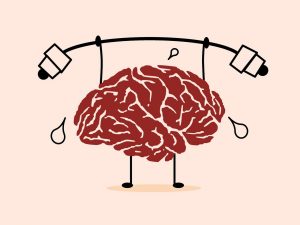 Your prescription
Your prescription
All these titles and more can be found on the Richmond Library Bibliotherapy Pinterest Board or through the Library Catalogue. You can click on the book jackets or links above to go straight to our catalogue and place a reservation.
There are hundreds more ‘comfort’ books out there. If you search the term online you’ll find scores of recommendations. Obviously, reading isn’t a replacement for sound advice from a GP or medical professional but it could just lift the spirits and assist with boosting mental health.
These other blog posts from Richmond Library Services may also interest you: Books are Good for your Health about Books on Prescription and Are you a Book Groupie? about Reading Groups. There’s also a Pinterest Board dedicated to Mental Well-being.
Sarah [Library Supervisor]
